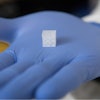As the lead editor of a magazine that went to automotive repair technicians about 15ish years ago, one of the main concerns for our readers at non-dealership shops was investing in the proper tools and software for interfacing with the growing number of computer-controlled systems.
Basically, all the technology getting embedded into vehicles made it easier to access the source of the issue, but potentially more difficult and expensive to repair. Well, it seems like those repairs now have a new technological challenge – supply chains capable of properly supporting such advanced systems.
First reported by Digital Trends, Nissan is dealing with a malfunctioning radar module that is disabling the automatic emergency braking system. Part of the company’s Intelligent Safety Shield platform, this module sits in the front grille and monitors a vehicle’s proximity to other vehicles, warns of possible collisions, and even applies the brakes if the driver doesn’t react in a timely manner.
The flaw with this radar component, which is supplied by Bosch, is that for some unknown reason it’s deactivating itself. When this happens, the cruise control and emergency braking systems are also disabled, triggering a warning light on the dashboard.
The company feels the issue is exclusive to the 2018 Sentra, but Digital Trends reports that owners of Armadas, Altimas and Muranos have also experienced this problem.
It’s also worth noting that the same safety system is in place for 2018 Leaf, Rogue and Pathfinder models, and over 1,000,000 Nissans will utilize the braking system in question by the end of the year.
Adding to the issue is that obtaining replacement parts that utilize such an intricate combination of sensors, cameras and electronics is not as simple as pumping out other types of replacement parts.
Not only are Nissan, and other automotive OEs for that matter, more dependent on suppliers like Bosch for these highly autonomous technologies, but the supply chain of those partners also comes into play. Before suppliers can deliver a replacement, they need to first complete initial orders to other OEs, which are obviously competitors.
Nissan has acknowledged the issue and is working with their dealerships, and Bosch, on a fix. They hope to have something in place “within the coming weeks.”






















